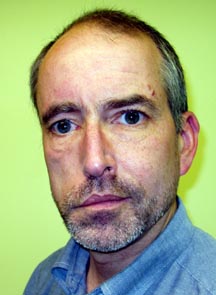
Bruce Jackson
After receiving a BA degree from Taylor University, Bruce received an MA from Wheaton College in Counseling and an MA from Duquesne University in Spiritual Formation.
Before assuming his current position with CCHF, Bruce
served on the north side of Pittsburgh's inner city for 19 years. During
that time he was on staff at Allegheny Center Alliance Church, where he served
in the capacities of Counselor, family and community ministries, Executive Pastor,
and Director of Community Development. Believing in the Perkins model of the
3-Rís he moved into the north side with his family and became part of the
community where he was very involved in the the development of initiatives for
strengthening families, employment assistance, developing leaders, and
counseling through programs such as Parent Impact, Single Parent Retreat,
Homeowner Initiative, and Recovery Ministries. While in Pittsburgh he also
helped initiate the North Side Christian Health Center, offering primary health
care, and then served as its Executive Director.
Bruce has been serving since August 2004 as Executive Director of Christian Community Health Fellowship, an organization that networks health care providers for the purpose of addressing health care to the underserved and uninsured people. The organizationís motto is ďLiving out the gospel through health care among the poor.Ē
On April 30, 2005, Bruce spoke at the GRMCCF Christian Physicians Breakfast on the topic: "Working Among the Poor: A Cross-Cultural Adventure for Health Professionals."
| He had this to say about his subject material: "It has often been said that as you walk in another personís shoes you gain an understanding of that person. Jesus was able at one moment to relate to a person in a position of power and authority and at the next moment to relate to a person that had no options and was in poverty. We will be looking at the silent barriers that prevent poor people from accessing health care, and in looking at these barriers we will gain an understanding of their world. The obvious barriers are access, provider shortage, and inability to pay (no insurance). The silent barriers include lack of options, asset limits, powerlessness, issues of trust, survivor mentality, and the unseen barriers of attitudes and atmosphere created by providers." |
Bruce Jackson |